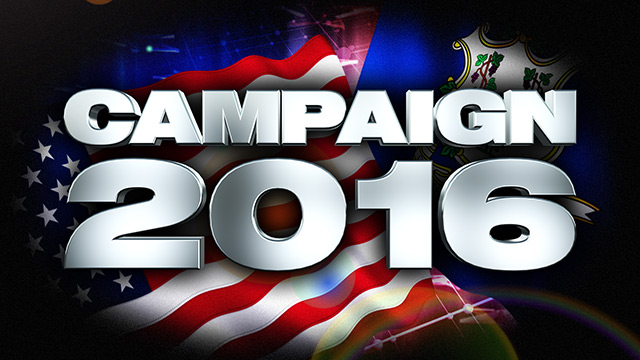‘Lean and mean’ campaigns enable GOP candidates to endure
WASHINGTON (AP) — As Scott Walker gave up on his 2016 presidential race this week, he implored other Republicans in the crowded field to follow his lead and drop out — so that one could rise to challenge front-runner Donald Trump.
None appears likely to do so anytime soon.
Walker stood out in the GOP race with his unsustainable mix of lackluster fundraising and an expensive campaign operation. Few if any of the 15 remaining candidates feel the intense financial pressures that he did, according to a review of fundraising records and interviews with campaign staff.
“We certainly don’t have a massive campaign mousetrap that we can’t pay for,” said Curt Anderson, a senior strategist for Louisiana Gov. Bobby Jindal, a presidential hopeful who, as was Walker, is at the bottom of early preference polls. “Maybe other campaigns have gotten a bit out over their skis, but no one quite like he had.”
In the 70 days between Walker’s kickoff and his exit from the race, the Wisconsin governor built the kind of campaign operation that more closely resembled that of a party nominee, with nearly 100 employees. Former aides and top donors said Walker’s team crafted a pricey plan to introduce him nationwide, but struggled to raise the millions of dollars needed to pay for the strategy.
“People don’t stop running for president because they run out of ideas or they run out of a desire to give speeches,” said Terry Sullivan, Marco Rubio’s campaign manager, at a panel discussion Monday in Washington. “They stop running because they run out of money.”
Walker didn’t even last long enough to file his first formal campaign finance report. The next reports are due in mid-October, and it’s then that Rubio, Jindal and others in the race will have to disclose how their fundraising — and campaign spending — is shaping up.
Chris Christie, the governor of New Jersey, was known for expensive tastes while serving as a U.S. attorney and chairman of the Republican Governors Association, preferring chartered planes and luxury hotels for his past politicking.
But without an influx of big campaign money and little movement in early polls, his aides say, he’s been thrifty in his three months as a presidential candidate. He generally flies commercial and has traded resorts and high-end meals for Radissons and Mexican food joints.
In a fundraising pitch emailed on Wednesday, Matt Mowers, Christie’s New Hampshire director, wrote that $22 lets him invite 50 people to town halls. “Any amount helps,” he wrote. “As we keep this team ‘lean and mean’ we use this contribution wisely.”
While Rubio’s campaign took in about $9.8 million through the end of June, far more than most of the other candidates, his operation is eager to emphasize thriftiness.
Sullivan said at a Monday gathering of campaign managers that he personally must approve any expense over $500. He said Rubio almost always flies commercial — even ultra-cheap airlines on occasion.
One reason the candidates seem anxious to portray themselves as penny pinchers: Not much money is coming in.
The usual summertime fundraising slowdown was exacerbated this year by the dominance of Trump, the billionaire celebrity and real estate mogul who is mostly paying for his own campaign. Many reliable Republican donors are sitting on their wallets until, as Walker advocated, the contest narrows to fewer candidates.
And as the departures of Walker and former Texas Gov. Rick Perry show, super PACs and their ability to raise unlimited amounts from wealthy donors can be only so helpful, because those groups are barred from taking directions from the candidate they’re helping.
That means super PACs can’t legally pay for the basic expenses of running for president, such as candidate travel and official campaign employees.
Most of the underdogs have been eager to portray themselves as scrappy all along. Those who, like Walker, have low-digit support in most recent national surveys have only a handful of employees and are focused on a single state, such as first-to-vote Iowa.
That group includes Jindal, South Carolina Sen. Lindsey Graham, former Virginia Gov. Jim Gilmore, former New York Gov. George Pataki and former Pennsylvania Sen. Rick Santorum.
“This is the survivor portion of the campaign,” said Matt Beynon, a Santorum spokesman. “You have to build an organization for the resources that you really have, not for the resources you expect or want to have.”
Santorum is taking a page from his own playbook. He raised just $920,427 by the time Iowa voters caucused in January 2012. But his strategy of driving himself around in a pickup truck to each of the state’s 99 counties worked: He narrowly won.
This time, he raised a little over $650,000 in his first month as a candidate. “Santorum,” Beynon said, “is a master at running underfunded campaigns.”
[livemarket market_name="KONK Life LiveMarket" limit=3 category=“” show_signup=0 show_more=0]





No Comment